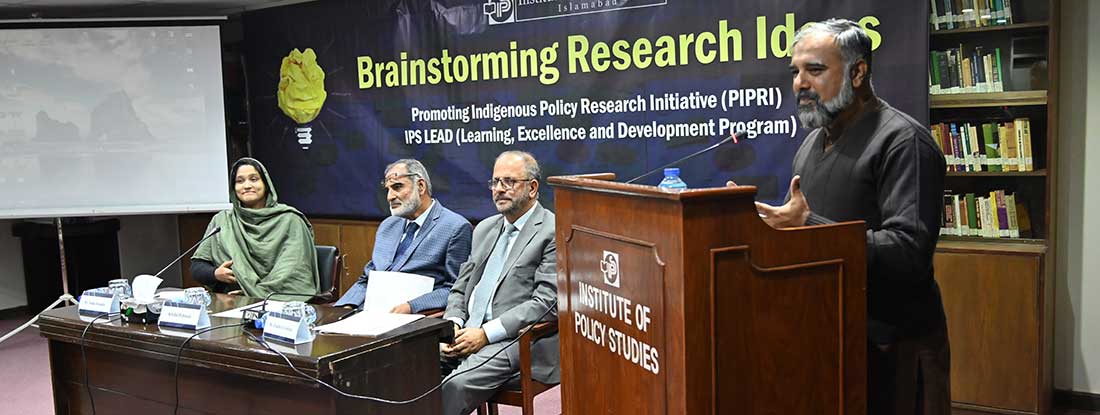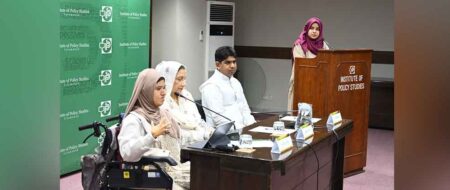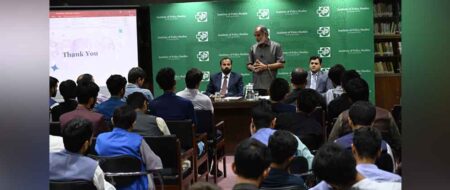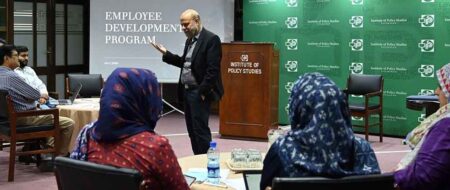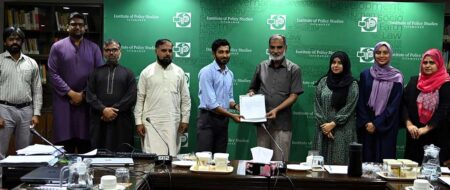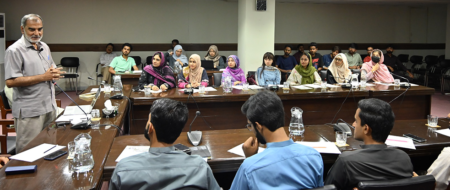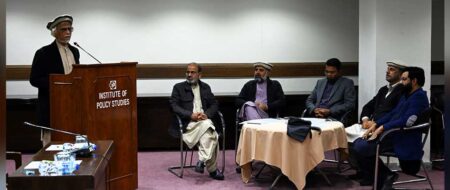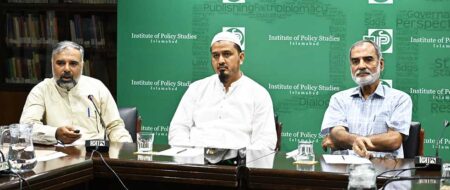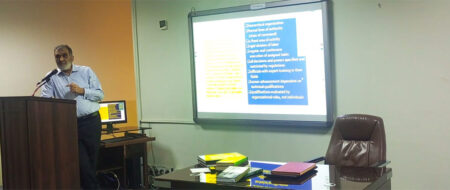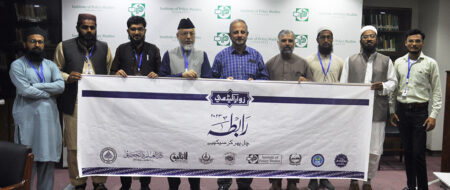FJWU law students enlightened over research gaps in legal studies and the actual practice
The overarching objective of any research process should be directed towards the advancement of society and fostering positive societal transformation. For this, it is important to cultivate research culture as an integral aspect of the collective national mindset.
This was observed by Khalid Rahman, chairman IPS, during an interactive session with the law students of Fatima Jinnah Women University (FJWU), Rawalpindi, held at IPS on November 30, 2023.
The Brainstorming Research Ideas session held under the IPS LEAD – the learning, excellence and development program of Institute of Policy Studies (IPS, aimed to provide law researchers with the opportunity to brainstorm their research areas with senior experts and practitioners in legal studies.
The delegation, headed by Dr Nadia Khadam, assistant professor, Department of Law, FJWU, comprised students from the final year of the LLB program writing their research proposals. The session was addressed by Khalid Rahman, chairman, IPS, and Dr Fakhr-ul-Islam, advisor, research and academic outreach, IPS.
Khalid Rahman interacted with the students and highlighted that the end goal of the research process should be the betterment of society. He emphasized the pivotal role of research in effectuating positive societal change and contributing constructively to the nation. He also underscored the significance of cultivating a culture of research as an integral facet of the national mindset.
Dr Nadia Khadam highlighted the lack of connection between academic research and practical legislation, and emphasized the need for a research-policy interface.
Earlier, Dr Fakhr-ul-Islam introduced the Brainstorming Research Ideas program that aims to sensitize the participants and stakeholders on the importance of indigenous narratives and solutions in the research being produced in Pakistan. He said that research is a process of skill optimization and must be considered a part of the national agenda for human development in this era of knowledge economy.
The session was followed by separate group discussions on constitutional law, environmental law, criminal law, and alternative dispute resolution (ADR). Esteemed legal experts and practitioners, including Prof. Shahzad Iqbal Sham, senior research fellow, IPS, Amir Abdullah, advocate Supreme Court, and Syed Abdullah Anwer, a practicing lawyer and senior research fellow at MANTAQ Center for Research, actively engaged with the students. The group discussions assisted students in brainstorming their research areas by highlighting key dimensions of research gaps present in the practical field of law and legal practice.
For constitutional and environmental law, Prof. Shahzad Sham provided invaluable insights into the foundational framework of the Constitution, emphasizing research methodologies, ethics, and the significance of primary data sources in legal research. He guided students towards specific areas in the field that should be explored, such as the Supreme Judicial Council and Environmental Justice within the framework of Pakistan’s Constitution.
Advocate Amir Abdullah directed attention towards contemporary aspects of criminal law, highlighting the relevance of modern devices in pertinent research areas. Similarly, in the field of ADR, Abdullah Anwer highlighted pertinent research avenues, such as the Islamic mediation concept for non-cognizable issues, Med-Arb (Mediation-Arbitration), and the role of the lower judiciary in facilitating ADR within the legal landscape of Pakistan, etc.



